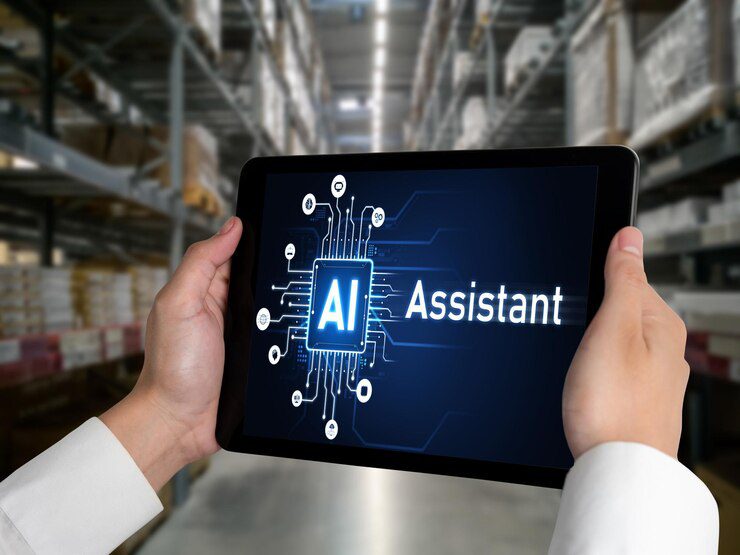Artificial Intelligence (AI) is no longer just a concept from sci-fi movies; it’s a game-changer reshaping industries across the globe. The impact of AI is profound and far-reaching, influencing everything from how we shop to how we work and even how we interact with technology daily. Let’s dive into the transformative effect AI is having on various sectors, and why it’s crucial to stay ahead of the curve.
AI in Healthcare: A New Frontier
One of the most significant impacts of AI is in the healthcare industry. AI-driven technologies are revolutionizing diagnostics, treatment plans, and patient care. According to a report by Deloitte, AI applications in healthcare could save the industry up to $150 billion annually by 2026.
AI-powered tools like IBM’s Watson are aiding doctors in diagnosing diseases more accurately by analyzing vast amounts of medical data. For example, AI algorithms can detect early signs of conditions like cancer through imaging scans with remarkable precision. Moreover, personalized medicine is becoming more attainable as AI helps tailor treatments based on individual genetic profiles, improving patient outcomes and reducing side effects.
AI in Finance: Shaping the Future of Banking
The impact of AI in the financial sector is equally transformative. From fraud detection to personalized financial advice, AI is enhancing efficiency and security. The global AI in fintech market is projected to reach $22.6 billion by 2025, according to a report by Research and Markets.
AI algorithms are used to detect fraudulent transactions by analyzing patterns and anomalies in real-time, significantly reducing the risk of financial crimes. Robo-advisors are also gaining traction, offering personalized investment advice based on individual risk profiles and market trends. This democratization of financial services is making wealth management accessible to a broader audience.
AI in Retail: Revolutionizing the Shopping Experience
In retail, AI is changing the game by enhancing the shopping experience and optimizing supply chain operations. A report by McKinsey highlights that AI can drive a 10-15% increase in revenue for retailers by improving customer personalization and inventory management.
AI-powered recommendation engines, like those used by Amazon and Netflix, analyze user behavior to suggest products tailored to individual preferences. Furthermore, AI helps streamline supply chains by predicting demand, managing inventory, and automating warehouse operations, reducing costs and improving efficiency.
AI in Transportation: Navigating the Road Ahead
The transportation industry is also experiencing significant changes due to AI. Autonomous vehicles, traffic management systems, and predictive maintenance are just a few examples of how AI is reshaping this sector. According to a study by Intel, the market for AI in transportation is expected to reach $100 billion by 2030.
Self-driving cars, powered by AI, have the potential to revolutionize how we travel, reducing accidents caused by human error and improving traffic flow. AI-driven traffic management systems can optimize traffic signals and reduce congestion, leading to more efficient commutes. Additionally, predictive maintenance powered by AI helps prevent vehicle breakdowns by analyzing data from sensors and scheduling timely repairs.
AI in Education: Personalized Learning for All
The impact of AI on education is equally significant, offering new ways to enhance learning and administrative efficiency. AI is enabling personalized learning experiences by tailoring educational content to individual student needs. The global AI in education market is expected to reach $10.38 billion by 2027, according to a report by MarketsandMarkets.
AI in Entertainment: Redefining Content Creation
The entertainment industry is also feeling the impact of AI, particularly in content creation and distribution. AI algorithms are being used to generate music, create visual effects, and even write scripts. A report by PwC indicates that AI could contribute $4.4 trillion to the global economy by 2030, with a significant portion coming from the entertainment sector.
Conclusion
The impact of AI on various industries is undeniable and profound. From transforming healthcare and finance to revolutionizing retail and transportation, AI is driving innovation and efficiency. As AI technologies continue to evolve, staying informed and adaptable is crucial for businesses and individuals alike.
Embracing AI offers opportunities for enhanced productivity, improved customer experiences, and new ways to solve complex problems. By leveraging the power of AI, industries can not only stay competitive but also drive positive change in the world. So, whether you’re a business leader, a consumer, or just a tech enthusiast, the AI revolution is one you won’t want to miss.







